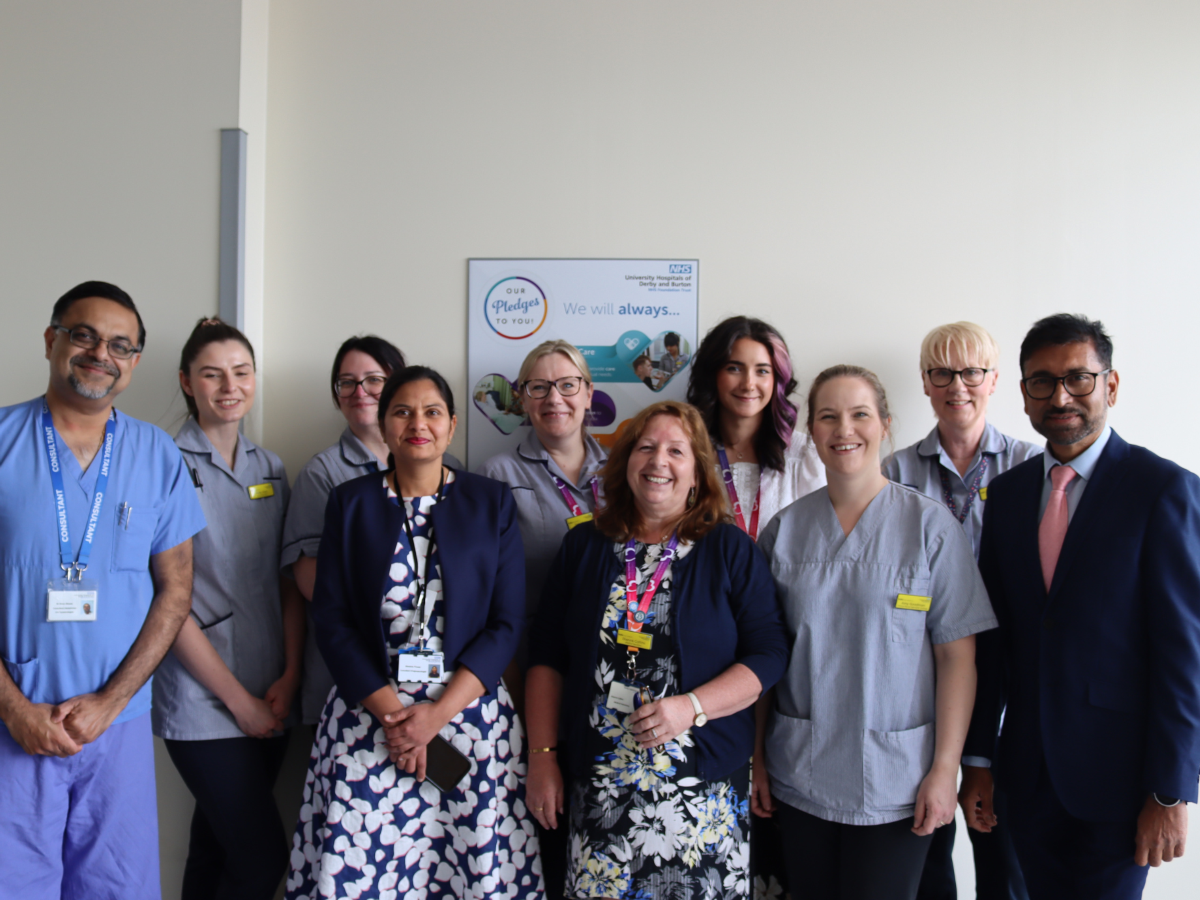Urogynaecology unit becomes one of only 40 centres to achieve nationally-renowned accreditation

The Urogynaecology unit at Royal Derby Hospital has become one of only 40 sites in country to be recognised at a national level for its high quality care to patients.
The team demonstrated to The British Society of Urogynaecologists (BSUG) and the Royal College of Obstetricians and Gynaecologists (RCOG) that it is providing an excellent, safe service to patients, meeting the highest standards for care and quality nationally, as well as showing how they plan to continue to evolve and develop the service.
The Urogynaecology unit provide care for women who are experiencing urinary incontinence, pelvic organ prolapse, issues relating to overactive bladder, painful bladder syndrome and recurrent urinary tract disorders, and are based at both Royal Derby Hospital and Queen's Hospital Burton.
Following the Derby team achieving this prestigious accolade, they join the Burton-based team as an accredited centre, meaning both of the Trust's urogynaecology teams have been recognised on a national level for the quality of care they provide to our communities in Derbyshire and Staffordshire.
The purpose of BSUG accreditation is to define and monitor standards of care, organisation and quality, focusing on key areas such as improving patient care, encouraging multidisciplinary team (MDT) working, and boosting the prospect for the growth and development of units.
Mr Bivas Biswas, Consultant Obstetrician and Gynaecologist, said this is a huge achievement and one that firmly puts UHDB and Royal Derby Hospital on the map nationally for providing exceptional care for urogynaecology patients:
"This shows that we, as a Trust, are doing the right thing for our patients and achieving the best clinical outcomes in the process.
“While the work we do might not be lifesaving, it is certainly has a huge impact on the quality of life for those women who come through our service, and it's so nice to see how happy they are with the outcomes of their treatment.
“In the East Midlands north deanery, we are only the second centre to achieve this, with only a couple of others in south deanery being accredited. This really is a positive development for the team and the organisation and I'm really proud of everyone involved."
Clinical Nurse Specialist, Holly Over, was heavily involved in the accreditation process, and explained the lengths and level of detail the team had to go into to demonstrate they were delivering the highest standards of care for our patients:
"BSUG break the process down into two parts; one is approval of our documentation, clinical information, governance processes and complexities of cases we treat, and the other involves a site visit to inspect our facilities and learn more about the care we provide and our MDT approach first-hand.
"However, this was particularly difficult as the visit was carried out virtually, but everyone in the team from our admin colleagues through to our consultants got involved to ensure we reached our goal."
The team at Royal Derby Hospital is made up of three consultants, two clinical nurse specialists and three secretaries, providing treatment to patients who have suffered a prolapse and those with urinary incontinence - but they are hoping to expand their service to relieve pressure on operating theatres and offer a wider range of services in as a 'one-stop' unit for patients.
Explaining more about the role of the unit, Holly said: "We are keen to keep doing what we're doing but also to continue to expand our services, bringing more treatments from a theatre setting into outpatients, which will also mean patients get to go home on the same day and free up hospital capacity, which would be a great result."
Mr Biswas added: "In the ensuing months we are hoping to be able to offer more ambulatory urogynaecology services including bringing incontinence treatment procedures as out-patients, in addition to flexible cystoscopies that we already provide [a non-invasive procedure to analyse the bladder], thus enhancing the patient experience further.”
